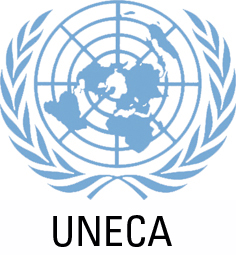Focal point
Location
P.O. Box 3001
Addis Ababa, Ethiopia
Established by the Economic and Social Council (ECOSOC) of the United Nations (UN) in 1958 as one of the UN's five regional commissions, ECA's mandate is to promote the economic and social development of its member States, foster intra-regional integration, and promote international cooperation for Africa's development.
Made up of 54 member States, and playing a dual role as a regional arm of the UN and as a key component of the African institutional landscape, ECA is well positioned to make unique contributions to address the Continent’s development challenges.
ECA’s thematic areas of focus are as follows:
- Macroeconomic Policy
- Regional Integration and Trade
- Social Development
- Natural Resources
- Innovation and Technology
- Gender
- Governance
Members:
Resources
Displaying 311 - 315 of 872Sustainable development outlook for Africa
This two-part paper attempts to address some of the questions that are specifically related to the environmental dimensions of sustainable development.
Management of land-based resources for sustainable development : policy recommendations
This paper states that the development strategy of most African countries, since independence, has depended mainly upon the exploitation of their natural resources. These include agriculture, minerals, energy, water and other biological resources. Unfortunately, the strategy did not bring about the expected results but created environmental degradation and increased poverty (World Bank, 2003).
Management of land-based resources for sustainable development : policy recommendations
This paper states that the development strategy of most African countries, since independence, has depended mainly upon the exploitation of their natural resources. These include agriculture, minerals, energy, water and other biological resources. Unfortunately, the strategy did not bring about the expected results but created environmental degradation and increased poverty (World Bank, 2003).
Improving Agricultural productivity and natural resource management in the Great Lakes region of East and Central Africa : enhancing poverty reduction and guewth prospects in East Africa
This paper examines managing the nexus between poverty, declining agricultural productivity and natural resources requires an approach that integrates appropriate technologies, institutional innovation, and an enabling policy environment.
Land tenure systems and their impacts on food security and sustainable development in Africa
This report is the first in a series of research studies that the Economic Commission for Africa (ECA) will produce with a view to improving the understanding of the links between land tenure systems and sustainable development in Africa. In a continent where 80 percent of the population relies on agriculture for their livelihood, the formulation and implementation of appropriate land policies is a paramount factor in poverty reduction strategies. Research is therefore needed to help policymakers take learned decisions when addressing land tenure issues.


